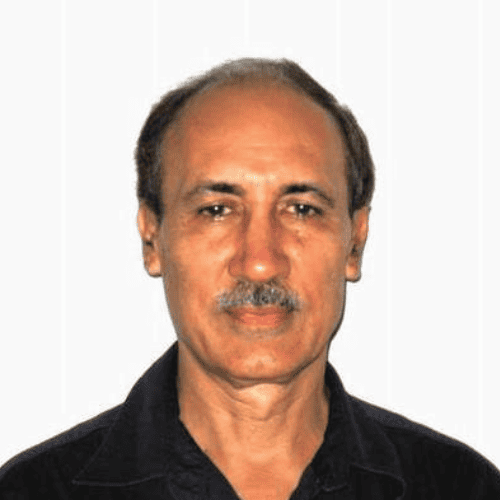
This relationship gives solidarity and camaraderie in its true meaning and value.
DTP alumni Naweed Harooni is a Pakistani born human rights defender now living in Malaysia, with his Malaysian spouse. After experiencing and witnessing hurdles and discrimination towards foreign spouses, he founded Malaysian Foreign Spouses Network (MFSN) to raise greater awareness of this discrimination and to fight for the rights of foreign spouses in Malaysia.
Naweed’s human rights advocacy began at home in Lahore, Pakistan during the 1980s. In 1992, he co-founded War Against Rape (WAR) to support survivors of violence and sexual abuse. Later, he co-founded Sudhaar to educate street children.
He moved to Malaysia in 2005 as a foreign spouse and for the first time in his life he faced discrimination and xenophobia for being a non-citizen. He still faces it on a daily basis.
Foreign nationals who migrate to Malaysia through marriage are defined as marriage migrants. Malaysian law does not entitle them to have the same rights as Malaysian citizens.
Besides, the wait to get a Malaysian Permanent Residency (PR) or nationality is very long and uncertain. They cannot acquire these by way of their right of being a spouse to a citizen, but it is purely the prerogative of the state to grant PR or citizenship to a foreign spouse or not.
Foreign spouses have to face discrimination in almost every area of life in Malaysia, including employment, banking, finance, investments, business or access to the government facilities. The list is endless!
I have encountered the deprivation of many basic rights as a foreigner here, such as the right to work.
Naweed has seen how this discrimination in status and rights has made foreign spouses marginalised and vulnerable to being taken advantage of by employers and authorities. It also makes it harder for them to seek remedy and redress.
As a “marriage migrant” Naweed was not allowed to work on a spouse visa as stamped on his passport, (unless permission was granted by the Directorate General of Immigration) so he began to volunteer for various NGOs. His personal situation as a foreign spouse brought him closer to the issues faced by the non-citizens in Malaysia, including migrant workers, refugees, undocumented and stateless people.
He worked as a volunteer with various initiatives in Penang including Jaringan Utara Migrasi dan Plarian (JUMP) for the rights of migrant workers, Foreign Spouses Support Group (FSSG) for the rights of foreign spouses and Penang Stop Human Trafficking Campaign (PSHTC) for the rights of refugees & migrant workers. He still is actively involved in working with the last one.
Naweed said that the DTP/MFA training worked as a catalyst and he was inspired to launch his MFSN initiative after participating in the training;
I was fortunate that DTP training brought a bundle of information and strategies for me to work on the problems/struggles faced by marriage migrants in Malaysia. Through the training I learnt many facts which I didn’t know before. For example, DTP training taught me that even the non-citizens and undocumented are governed under certain acts and laws and do have their rights.
The MFA/DTP training provided Naweed with enough tools and strategies that he has applied to work on possible advocacy solutions to address the rights of the foreign spouses in Malaysia. This has included making a submission as part of Malaysia’s most recent Universal Periodic Review.
Naweed said that the MFA/DTP training also offered him with space to expand his professional networks within and outside of Malaysia. It connected him with other like-minded human rights advocates who participated in that training including lawyers, NGOs, researchers, students, church representatives, individual activists and consultants, as well as foreign spouses and domestic migrant workers. While the training was in 2017, participants are still in touch with each other.
We developed a strong solidarity network amongst ourselves. We consult and support one another on issues related to migrant workers, refugees, marriage migrants, non-citizens and undocumented workers etc. This relationship gives solidarity and camaraderie its true meaning and value.
Naweed’s lifelong contribution to human rights continues in the work he does, in the collaborations he has nurtured and the individuals whose rights he has defended.
DTP acknowledges the traditional custodians of the land on which we work, the Bedegal people of the Eora Nation. We recognise their lands were never ceded, and we acknowledge their struggles for recognition and rights and pay our respects to the Elders – past, present – and the youth who are working towards a brighter tomorrow. This continent always was and always will be Aboriginal land.
Aboriginal and Torres Strait Islander peoples should be aware that this website contains images or names of people who have passed away.
DTP acknowledges the traditional custodians of the land on which we work, the Bedegal people of the Eora Nation. We recognise their lands were never ceded, and we acknowledge their struggles for recognition and rights and pay our respects to the Elders – past, present – and the youth who are working towards a brighter tomorrow. This continent always was and always will be Aboriginal land.
Aboriginal and Torres Strait Islander peoples should be aware that this website contains images or names of people who have passed away.
Privacy Policy | Terms of Use | Disclaimer | Policies
© 2022 Diplomacy Training Program | ABN 31 003 925 148 | Web Design by Studio Clvr